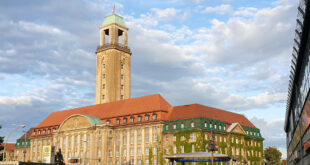Applying for asylum can be a long, complicated process. Deutsche Welle tells what you need to do.
———————–
How will my status in Germany be determined?
Whether you can stay in Germany long-term depends on the outcome of the asylum application process.
To kick this process off, you need to register as an asylum seeker at an initial reception facility. Then you can apply for asylum.
The only place to do this is at your local branch of the Federal Office for Migration and Refugees (BAMF).
In an interview, you will then have to explain why you fled your country and why you cannot or don’t want to return. Your reasons are recorded in writing. Those who don’t speak German will get a translator.
You can find all BAMF branch offices here
http://www.bamf.de/EN/Migration/AsylFluechtlinge/asylfluechtlinge-node.html
Here is information on the interview and the decision-making process
http://www.bamf.de/EN/Migration/AsylFluechtlinge/Asylverfahren/AnhoerungEntscheidung/anhoerungentscheidung-node.html
Further information on the interview
http://www.asyl.net/fileadmin/user_upload/infoblatt_anhoerung/Infoblatt_2015_en_fin.pdf
How long does it all take?
Usually, your applications will be processed in a few months.
Every applicant has their own administrative clerk. That’s why it’s possible that the applications of family members aren’t all dealt with at the same time.
Opportunities to speed up the process are few and far between. Minors have the option to ask for preferential treatment.
What is my status?
The status you are granted after the application depends on the route you took to get here. If you arrived in Germany via airplane or ship without entering another EU country first, you can potentially be granted the status of a person eligible for asylum.
If you’ve made your way to Germany via another EU country like Greece, you could be deemed a “recognized refugee.” Very often, however, you will be returned to the country where you first set foot in the EU. This process is governed by the Dublin Regulation.
If you are recognized as a refugee or as eligible for asylum, you are allowed to stay in Germany. People who cannot be deported for health reasons or other obstacles are only allowed to stay one year before their cases are reexamined. Refugees will get a permanent residence permit after several years of living in Germany.
http://www.bamf.de/EN/Migration/AsylFluechtlinge/Asylverfahren/Dublinverfahren/dublinverfahren.html
Who will not be recognized?
Those who come from one of the so-called “Safe States of Origin” are not likely to be granted asylum in Germany. The list of these countries is constantly updated. Those applying for asylum for economic reasons are usually also rejected. The rejection is delivered in writing in German and often in the applicant’s native language as well. The letter will also say by when the person has to leave Germany.
New rules for Safe States of Origin.
http://www.bamf.de/EN/Migration/AsylFluechtlinge/Herkunftsstaaten/herkunftsstaaten-node.html
Where do I live, how do I pay for food?
Most refugees spend their first months in Germany in an “initial aid facility.” That’s a large, often fenced-in property, with police, a doctor, a cafeteria and dorms on site for many people. You will receive three meals a day, clothing and hygiene items.
After that, you will be assigned to a city or a district. You cannot choose where you will be placed. This may be a bed in a group facility, like former military barracks. This is where you will stay during the asylum process until a decision is made.
© Deutsche Welle
 THE AFRICAN COURIER. Reporting Africa and its Diaspora! The African Courier is an international magazine published in Germany to report on Africa and the Diaspora African experience. The first issue of the bimonthly magazine appeared on the newsstands on 15 February 1998. The African Courier is a communication forum for European-African political, economic and cultural exchanges, and a voice for Africa in Europe.
THE AFRICAN COURIER. Reporting Africa and its Diaspora! The African Courier is an international magazine published in Germany to report on Africa and the Diaspora African experience. The first issue of the bimonthly magazine appeared on the newsstands on 15 February 1998. The African Courier is a communication forum for European-African political, economic and cultural exchanges, and a voice for Africa in Europe.



























